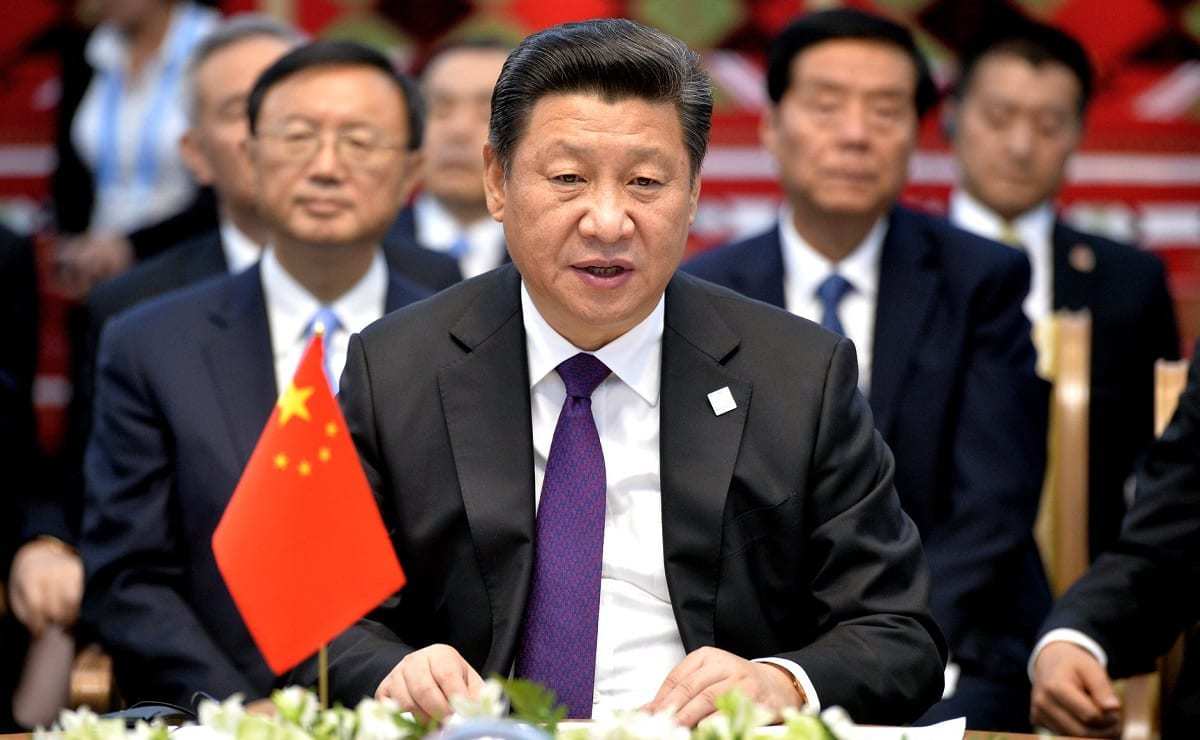What does China have to do with Georgia’s controversial new voting law or America’s roads and bridges?
The answer is nothing – but you would be forgiven for thinking otherwise after listening to America’s leaders of late.
Accused of supporting legislation reminiscent of Jim Crow, some conservatives have decided that a good response is to charge liberal politicians and corporate America with hypocrisy. Georgia’s disparagers cannot be taken seriously, they say, because those same critics are unwilling to boycott next year’s Beijing Olympics.
Of course, someone’s stance on the Beijing Olympics has no bearing on the quality of their arguments against restrictive voting rules. That the Chinese Communist Party is guilty of worse civil rights abuses than the state of Georgia should be irrelevant to any fair-minded discussion on U.S. election laws.
It is not just Republicans who are invoking the specter of China to score points in domestic politics, however. In President Biden’s recent speech to allay concerns about his infrastructure plan’s $2 trillion price tag, he specifically touted competition with China as a reason to get behind his big-spending approach.
“The autocrats are betting on democracy not being able to generate the kind of unity needed to make decisions to get in that race,” the President cautioned. “We can’t afford to prove them right. We have to show the world […] that democracy works.”
By casting his spending plans as part of a global struggle between democracy and autocracy, Biden was trying to turn his infrastructure proposal into a valence issue – something that no American could oppose.
But the goal of improving America’s infrastructure already enjoys broad-based support. The only disagreement is over how to pay for such improvements – a domestic debate between economic leftists and fiscal conservatives that is completely orthogonal to China’s position in the global order.
Indeed, conservative groups have, in the past, pointed to the “China threat” to make the exact opposite argument to that which Biden is making today – namely, that Americans have no option but to cut spending and lower the national debt if they want to compete with a rising China.
Why are public figures so eager to play the China card in support of their domestic agendas?
The sad reality is that America’s leaders seem to have concluded that anti-China sentiment is pervasive in the United States – that we are all Sinophobes now – and that exploiting this ugly fact can produce some handsome political payoffs.
They might well be right. But cynical China-bashing comes at a steep price. The hardening of public opinion toward China should be treated with caution, not viewed as a political windfall.
First, playing the China card degrades the quality of political debate inside the United States. If politicians can win over public opinion through emotional appeals about China’s rise – playing on jingoism and xenophobia, for example – then they will feel less compelled to make arguments grounded in reason. This is something every citizen should want to avoid.
Second, demonizing China will make it harder for U.S. leaders to conduct fruitful diplomacy with their Chinese counterparts even when their interests overlap, as is the case on several global issues.
Once Beijing has been established as an incorrigible enemy of the United States, nobody should be surprised when ordinary Americans reject even common-sense cooperation with China in areas such as economic policy, global health, arms control, or climate change.
Third, the indiscriminate invocation of China in U.S. politics makes it harder to criticize China in those instances when a stern approach is truly warranted.
Beijing’s treatment of the Uighurs and its strangling of democracy in Hong Kong are both issues that have rightfully elicited a strong response from Washington. But Chinese leaders have an easier time rebuffing such attacks when they can credibly accuse their critics of being reflexively anti-China rather than motivated by a genuine concern for political freedoms and human dignity.
Worst of all, portraying every aspect of American politics as taking place in the shadow of China’s rise will only worsen the problem of rising bigotry at home.
The connection between anti-China rhetoric and anti-Asian racism is an urgent issue facing the United States – one that the country’s leaders exacerbate every time they unnecessarily infuse China into domestic politics.
Relations between the United States and China are fraught. That much is true – and cannot be easily changed. But it is wrong and dangerous for America’s leaders to import this international-level dispute into national-level conversations.
Pouring fuel on the fire of U.S.-China discord might make it easier to defend controversial voting laws or build support for ambitious spending plans, but such short-term maneuvering risks doing real damage to American politics. Now more than ever, politicians on both the right and left must show restraint in how they discuss the China challenge.
Peter Harris is assistant professor of political science at Colorado State University.

